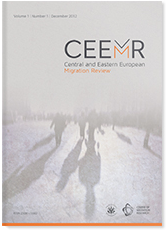The Transformation of Russian Citizenship Policy in the Context of European or Eurasian Choice: Regional Prospects
The Transformation of Russian Citizenship Policy in the Context of European or Eurasian Choice: Regional Prospects
Author(s): Irina MolodikovaSubject(s): Civil Law, International Law, Political history, International relations/trade, Post-Communist Transformation, Migration Studies
Published by: Ośrodek Badań nad Migracjami / Uniwersytet Warszawski
Keywords: citizenship policy; migration; resettlement; Russia; fSU;
Summary/Abstract: Acquiring citizenship in the country of resettlement is the ultimate step on the integration pathway of a resettled person. For people from countries of the former Soviet Union (fSU), we can see a great variety in patterns of citizenship acquisition and changes in migration policy governing the granting of citizenship. Russia is the main player in this field. As a descendant of the fSU, the country uses its right to determine whether or not to grant its citizenship to people in the new independent countries as a way of maintaining its influence on the post-Soviet and even the former Russian Empire regions. Russian citizenship was granted to m 8.6 million people between 1992 and 2016 (excluding the Crimean population), more than 92 percent of whom were from the fSU. Russia employs a range of different policies, starting with its compatriot policy for individual resettlement; then comes its not formally declared policy of issuing Russian passports for the population of non-recognised states (such as Transdnestria) and finally there is Russia’s policy of automatically granted citizenship for 2 million Crimean people. This paper explores the phenomenon of Russian citizenship policy and compares it with European or Eurasian policy governing fSU countries. It also discusses the implementation of this policy at both regional and global levels.
Journal: Central and Eastern European Migration Review
- Issue Year: 6/2017
- Issue No: 1
- Page Range: 98-119
- Page Count: 22
- Language: English

